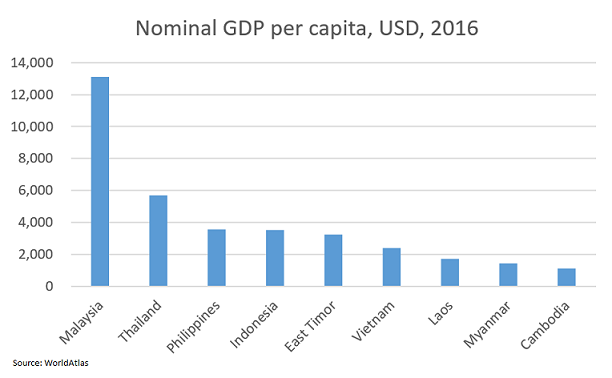Wages
/Publication note: I will be off to the beach starting tomorrow and for a week, so I will not be able to post. I am sure you will make do fine without me. See you on Monday, June 29.
I don’t see much in the news today. There are a few things that I want to work on when I get back, but in the meantime, this story popped out at me. I think I posted news that Apple will have some of its products “assembled” in Vietnam, specifically the airpods.
Well, we finally got a little information on the factory, run by Luxshare-ICT. The wages range from VND9-14m monthly ($390-610) for assembly-line workers. This breaks down into a base salary of VND4.8m and potentially more than double that for housing, travel, meals, overtime and attendance bonuses. It looks like workers are shooting for VND10m a month ($435).
The minimum wage in 2020 in Bac Giang (where the factory is located) is VND3.43m, so it is above that. The Asian floor wage (see this report for more details) was about VND9m last year, which is at the high range of what people are expecting.
But it looks like garment workers make VND3.7m or so as a basic wage in Vietnam (not counting some of the bonuses). The base is better at Luxshare-ICT, and hopefully these bonuses/benefits will come through and be valuable.
Ultimately, though it isn’t a great wage. And surprisingly, wages aren’t much lower than in China, where Foxconn workers earnings between $300-450 per month, according to this article.
We have talked about the fact that labor costs are high in Vietnam before (long time ago - Jan 2, 2019 - so far back, I can’t even link to it for some reason).
The median Vietnamese firm reported that wages and salaries cost about $2,739 per worker—about twice as high as in Lao PDR, Myanmar and Malaysia, and about 30 to 45 percent higher than in Cambodia, Thailand, and the Philippines. Wage costs are, however, considerably lower than in the BRIC economies other than India.
These higher salaries are offset by higher productivity, but if wages rise faster than productivity, the country is going to find it difficult to attract investment at the amounts the government wants/needs. This might be good in the long run, but I am sure the government won’t be happy.


